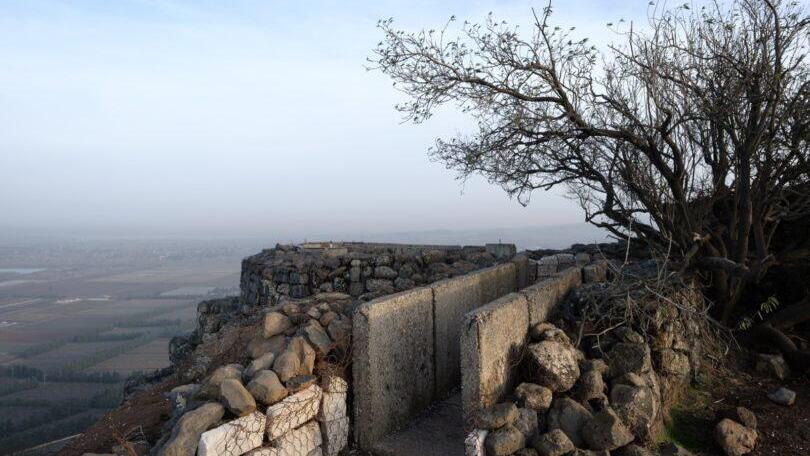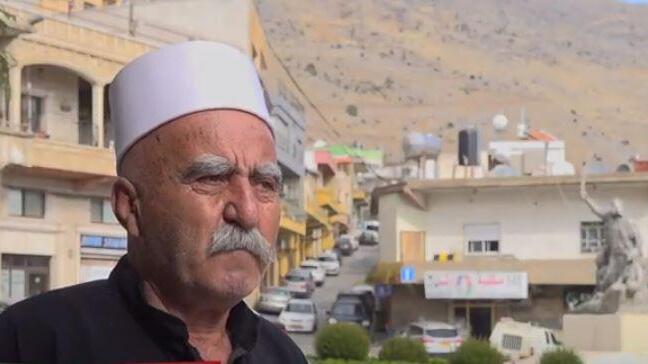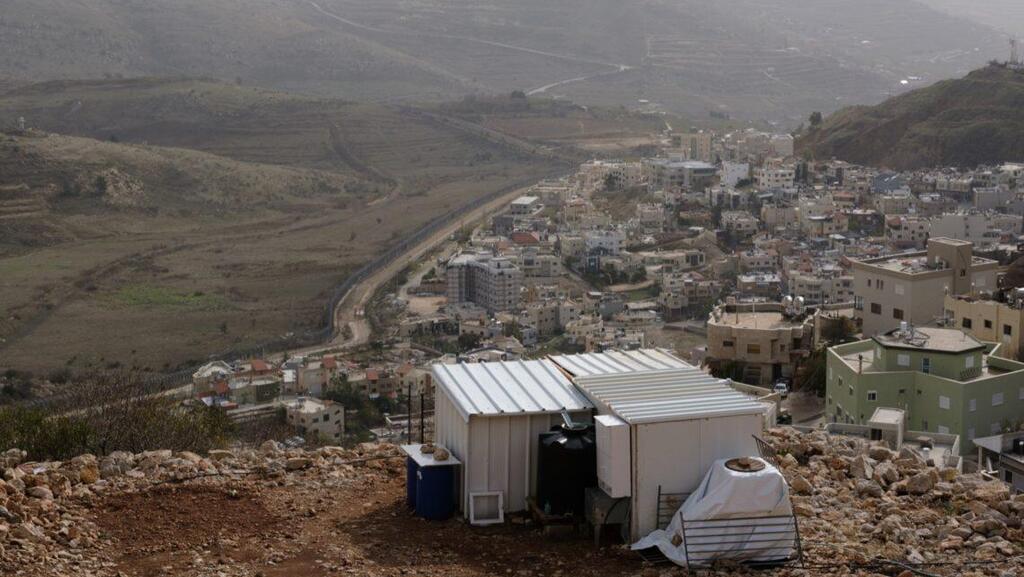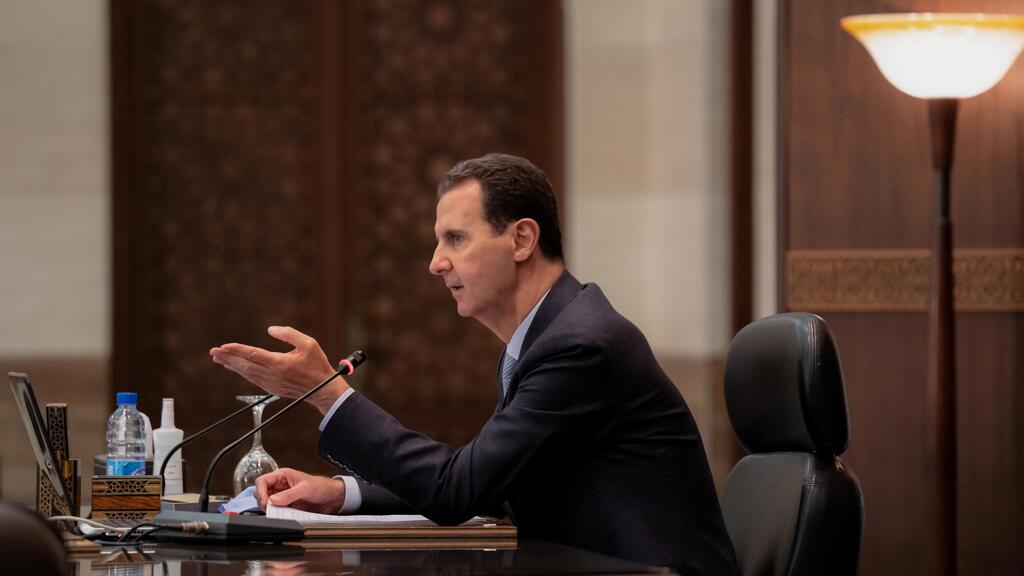Getting your Trinity Audio player ready...
Mid-December marks 40 years since Israel annexed two-thirds of the Golan Heights, captured from Syria in the 1967 Six-Day War. Officially, there remains a state of war between Syria and Israel.
“December 14, 1981 is another black day in the history of the Golan,” according to Sheikh Qasem Mahmoud al-Safadi of Majdal Shams, one of four Druze villages on the Golan Heights, who added that his loyalty is with his motherland of Syria.
“We tell them the Golan is an inseparable part of the Syrian Arab Republic, and the annexation law was born dead, and its value is not worth the ink on which it was written. We are Syrian Arabs; we belong to the Syrian Arab people,” he said.
The fertile hillsides of the Israeli-controlled Golan are inhabited by some 25,000 Druze, an Arab minority who practice an offshoot of Islam. Many still have relatives on the Syrian side of the fortified frontier.
In addition to its strong strategic importance lying less than 100 miles from the Syrian capital, Damascus and overlooking northern Israel, the Golan Heights also controls the flow of water into the Sea of Galilee and the Jordan River.
Hassan Fakhruddin says Israel fired him from his job as a schoolteacher for urging his students not to accept Israeli citizenship.
“We accepted Israeli identity cards to facilitate our movement, but we refuse Israeli citizenship,” he said.
When asked, a seeming majority of the Golan’s Druze residents express loyalty to the Syrian government, and its president, Bashar al-Assad.
It is not unusual to see the Syrian flag flying atop houses here.
Four decades after Israel officially annexed the Golan Heights, and two years after former U.S. resident Donald Trump recognized Israel’s sovereignty over the strategic plateau, most Arab residents say they still identify as Syrians, but allegiance to the Syrian government isn’t what it used to be.
6 View gallery


Arab residents of the Golan Heights celebrate the Syrian Independence Day
(Photo: The Media Line)
Majdal Shams resident Salman Fakhruddin said that his political views don’t coincide with most of the Druze residents of the Golan who support Assad’s rule.
“I have a deep enmity with him and those who preceded him. This is an individual regime and a system of thieves based on blatant repression,” he said.
Salman Fakhruddin says that the civil war in Syria “complicated” matters in the Golan Heights. He accuses the Syrian government and its policies of making the residents of the rocky plateau think of an alternative to their Syrian citizenship.
“Israel occupies the Golan. However, the reality we are living in, with the Syrian crisis, and the economic difficulties faced by the residents of the area, has caused a change in the anti-Israel stance in the Golan, the occupation provides better human conditions than our national state, and this is a shame for the ruling regime. This is a big shame,” he said.
Trump’s controversial decision was criticized by the international community, most of which considers the Golan Heights to be occupied territory.
There are more than 30 Israeli settlements in the Golan, which are home to about 20,000 settlers, many working in farming and tourism.
To show its gratitude, Israel recently named a settlement “Trump Heights” after the former president recognized the Golan Heights as part of Israel.
“We do not have a problem with the American people, but we tell the American leaders to fear God and make the right decision and not succumb to Zionism... If Trump is so generous, he should give Washington or New York to the Zionist entity, not the Golan. This is not his private property,” Safadi said.
Israel’s Population and Immigration Authority claims that applications for citizenship have increased in recent years, an assertion that is disputed by residents of the Golan.
Since the Syrian civil war erupted in 2011, Quneitra crossing – the primary point of transit for Golan residents – has been closed.
Safadi accuses the Israeli government of preventing the Druze from communicating with their relatives in Syria despite what they say is the restoration of Syrian control over the crossing.
6 View gallery


View of the Syrian side of the Golan Heights from the Quneitra crossing
(Photo: The Media Line)
“We can no longer send our children to study in Syrian universities, and clerics cannot travel, and we can no longer marry with our people in Syria, and we cannot export our apples and cherries to Syria as we used to,” he said.
Despite the declared state of war between the two sides, the area has stayed relatively calm, and with Syria wrapped up in its bloody civil war, Israel has affirmed its control over the Golan Heights.





